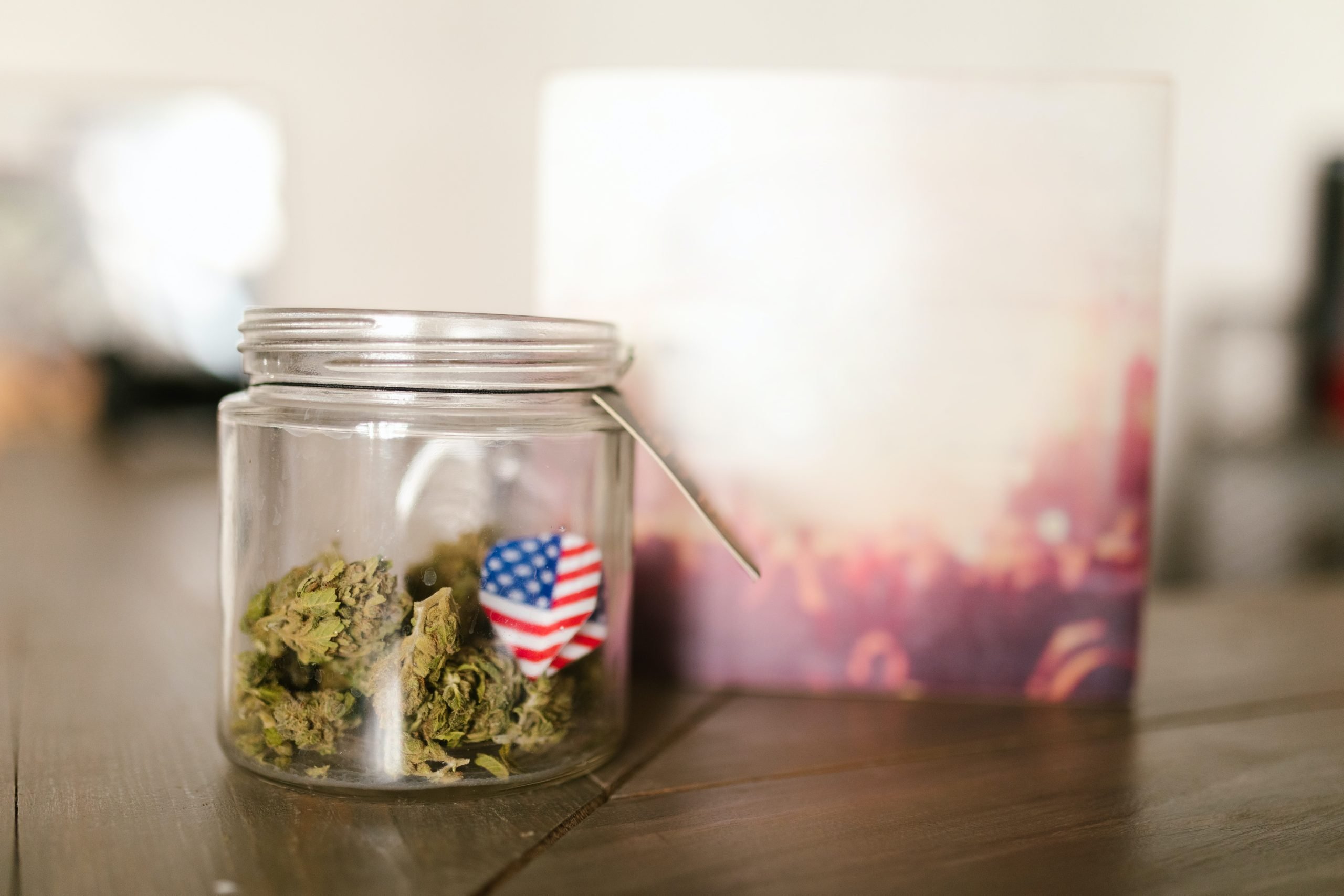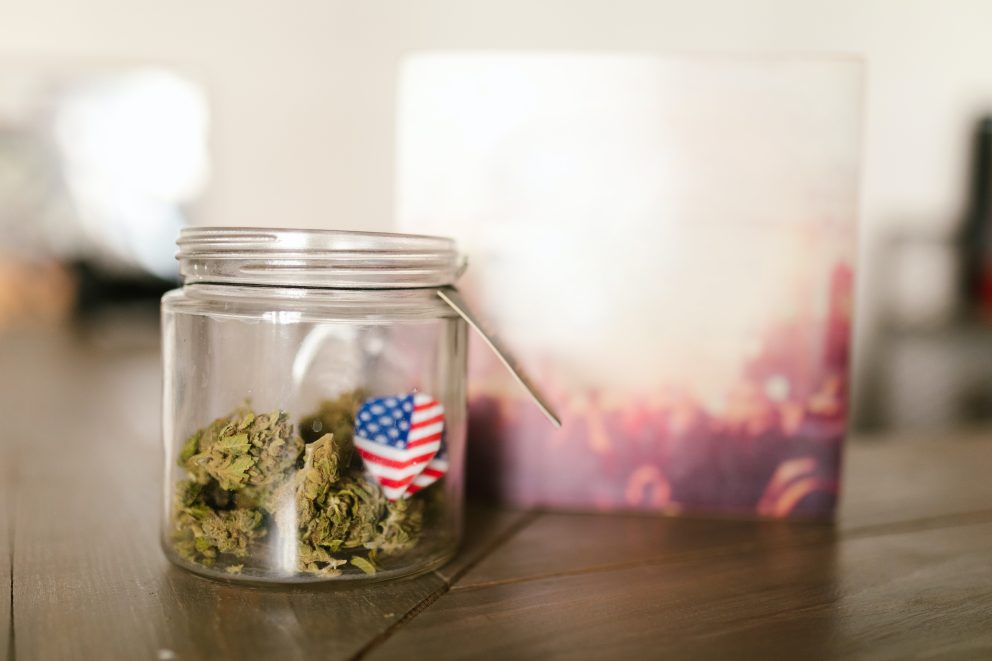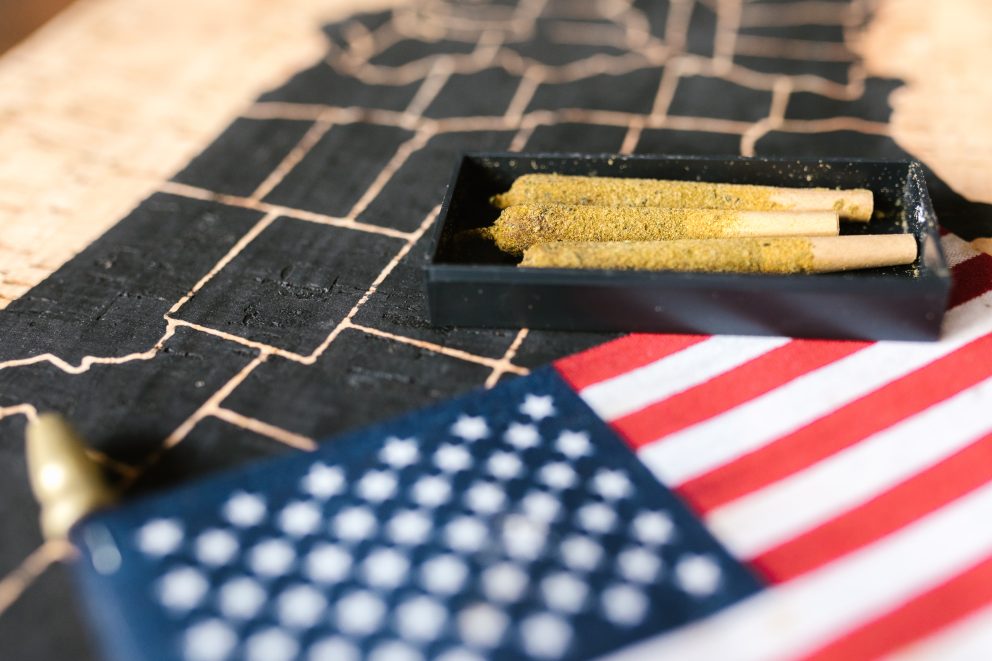
Is Weed Legal in Utah? Plus More FAQs About Utah Weed Laws & Utah Marijuana Legalization
Is Weed Legal in UT?
While many forms of medical marijuana are legal in Utah, weed is not currently legalized in Utah for recreational use. In order to access medical marijuana dispensaries, you must first get a Utah medical marijuana card. Apply for yours today!

Photo by RDNE Stock Project
Cannabis legalization seems like an inevitability across the US. Of the 50 states, only four have kept cannabis fully illegal: Idaho, Kansas, South Carolina and Wyoming. You might think a state with conservative values regarding substances like Utah might be one of those holdout states. However, the medicinal value of cannabinoids cannot be denied.
What are the pot laws in Utah? When exactly was marijuana legalized in Utah? How can you get your medical marijuana card? This post will explore the complex cannabis law so you can understand how and where you can legally obtain cannabis in Utah.
What is the cannabis industry like in the Beehive State? This post will fully explain cannabis law and help you understand how easy it can be to obtain legal medical cannabis. But first let’s understand how cannabis laws work in general.
How Do Cannabis Laws Work?
Sadly, cannabis law is not quite as simple as legal and illegal. There is no simple legal switch that can be turned because of how the law works. It can be a bit confusing but at the simplest level there are three different forms of cannabis legalization: cannabis legalized for medical use, recreational use, or being decriminalized.
For medical marijuana, there are almost countless regulations that must be considered. The government must decide how cannabis can be obtained, who can grow it, and the bureaucracy for how physicians can prescribe it. The health conditions that qualify for a cannabis prescription are often decided by the government and in some cases, even how patients are allowed to consume it.
State laws can vary and the infrastructure can be complex. For example, Oklahoma is one of the only states where cannabis can be prescribed for any medical condition. Meanwhile, Pennsylvania has made edibles and smoking weed illegal.
States must build a framework to decide which agency will manage the new medical marijuana industry. Given all of these processes, even when states do legalize cannabis it can take months or even years to get the program running.
Sometimes the first step is the approval of low-THC cannabis products for medical patients. Florida began its legalization for medical use with the approval of low-dose THC; a few years later, full-strength cannabis was approved for medical patients. Often, after the medical marijuana program is a success attempts get made to fully legalize recreational cannabis.
As a controlled substance, possession of marijuana carries heavy charges. Decriminalization is another step in the legalization process. It is not quite the same as making weed legal. Rather than addressing the legal status it addresses the penalties, decriminalization downgrades the crime of possession from a felony to a misdemeanor or even lower charge.
In areas where cannabis has been decriminalized, rather than facing jail time for possession of a small amount of cannabis you may only pay a fee or face community service. The main driving force for decriminalization is not legalization but to help regulate cannabis law.
Cannabis cases can often be racially biased and unfairly prosecuted. This bias has been part of the major push for decriminalization. On October 6, 2022, Professor Biden signed an executive order federally pardoning anyone federally charged or in Washington DC charged with possession of cannabis.
While a state may not choose to decriminalize cannabis, some cities have elected to decriminalize cannabis in their borders. A big driving force is that many marijuana charges get unfairly prosecuted with people of color often being targeted for possession and given jail time. Utah is one of the few states that still carries jail time even for possession of small amounts of weed.
The final form of legalization is marijuana for recreational use. This changes the legal status of cannabis from a controlled substance to existing like alcohol or cigarettes. People must be of age and provide identification to purchase it and dispensaries get opened to the public at large.
Cannabis legalization can often be delayed due to social issues or a lack of proper infrastructure. When laws have complex or conflicting jargon they often will not survive the bill process and not get legalized. This legal process takes time but understanding the law ensures you not only properly follow it but also support legislation that aligns with your values.
Apply for a Medical Marijuana Card Online Today
Join over 100,000 patients who have chosen Green Health Docs as their medical cannabis doctors. We have a 99% approval rate and offer a 100% money back guarantee!
Is Marijuana Legal In Utah?
Currently, marijuana is only legal for medical use and under the proper conditions. We’ll review those throughout this article.
Despite being legalized for medical use, the cannabis laws in Utah do still remain rather strict. It’s one of the few states that will still punish marijuana possession with jail time for even small amounts of cannabis.
Is Weed Decriminalized In Utah?
Sadly, cannabis laws still remain rather harsh in Utah. It’s one of the 19 states that still will punish any marijuana possession with jail time. Possession of even one joint can land you 6 months in prison and a $1,000 fine.
Anything over an ounce, can lead to a year of incarceration with a $2,500 fine. Possession of over a pound of cannabis escalates the crime to a felony. Also, the sale of any cannabis is considered a felony with 5 years and a $5,000 fee.
The issue with these laws is they can disproportionately target people of color and low-income communities. Black Utah residents are over three and three-quarters times as likely to be arrested for possession over their white counterparts.
Are Edibles Legal In Utah?
Like Alabama, Utah has also made edibles illegal. Smoking cannabis of any kind remains illegal but one can legally purchase unprocessed flower.
You are not allowed to smoke cannabis even with a medical marijuana card. Vapes are legal for cannabis cardholders as well as the following forms of cannabis products:
- Aerosols
- Tablets
- Capsules
- Concentrated oil
- Liquid suspension
- Transdermal preparation
- Gelatinous cube
- Unprocessed cannabis flower in a tamper-evident and a resistant container that is opaque that contains a quantity that varies no more than 10% from the stated weight at the time of packaging
- Wax or resin
Candies, cookies, brownies, and other edible products are prohibited.
Are Delta-8 and Delta-10 Legal in Utah?
Under Utah’s Controlled Substances Act, all isomers of THC are considered controlled substances and equal under the law. That essentially bans delta-8 THC and delta-10 THC. Essentially, both are banned.
One exception is delta-9 THC that was derived from hemp and contains no more than 0.3% delta-9 THC by weight. This honors the current federal law by restricting cannabis which is defined as anything with more than 0.3% THC.
Is Recreational Weed Legal In Utah?
Currently, cannabis remains staunchly illegal with rather strict drug laws. However, polling shows over 60% of Utah voters support full adult-use legalization. Time will tell if legalization can make it through the legislature to get passed into law.
Utah Weed Laws
Marijuana laws In Utah are rather interesting. Utah has often been recognized as the first state to ban cannabis in 1915, however, historians have found that California was the first state to criminalize cannabis in 1913. In August 1915, the Church of Jesus Christ of Latter-day Saints officially banned cannabis for its congregants and two months later it was banned by the Utah government.
Utah Marijuana Legalization
The path to legalization for cannabis did take a decent amount of time and effort. There are many legal challenges to legalization. Not only does it require support from voters and legislators, if the laws do not adequately cover concerns and proper processes they can die before getting passed.
House Bill 105, signed in March 2014, signed by Governor Gary Herbert legalized the possession and use of low-THC CBD oil for patients with intractable epilepsy. The only issue was this bill did not include language or provisions related to how patients would be able to legally acquire the oil.
Senator Mark B. Madsen was a huge proponent of cannabis legalization. In 2015, he proposed Senate Bill 259 which would have legalized medical marijuana for a few medical conditions. The bill was defeated by a single vote. In 2016, he attempted to pass medical marijuana with Senate Bill 73. Sadly, it failed to find traction to reach legalization.
Additional Utah Marijuana laws include Senate Bill 89 which attempted to expand the low-THC CBD program into a more comprehensive medical cannabis program. It was not considered by Utah’s House of Representatives. However, by 2018, CBD would be federally legalized by the legalization of hemp products and classification of marijuana as anything with more than 0.3% THC.
Senate Concurrent Resolution 11, introduced by Senator Brian Shiozawa, encouraged Congress to reclassify cannabis as a Schedule II substance to allow for more comprehensive medical study of the drug. This did pass rather easily.
Utah Weed Legalization
In 2018, Representative Brad M. Daw introduced HB 195. This bill legalized the “right to try” medical marijuana by terminally ill patients. The law also allowed for patients to grow their own cannabis plants. In March of that year, the governor signed it into law.
Later that year, the Utah Medical Medical Marijuana Initiative was passed. It appeared on the ballot as Proposition 2. In December, the Utah Legislature passed HB3001 which amended the earlier proposition and added more robust information about the new cannabis program. It created the current medical marijuana program.

Photo by RDNE Stock Project
Utah Medical Marijuana
The legalization of cannabis in Utah led to the Center of Medical Cannabis. Managed by the Utah Department of Health & Human Services, there are fixed conditions under which Utah residents can legally obtain cannabis.
Medically, Utah residents are only eligible for medical marijuana recommendations if they have any of the government approved conditions.
The Qualifying conditions under the Utah Medical Cannabis Act are listed below:
- Alzheimer’s Disease
- Autism
- Amyotrophic Lateral Sclerosis
- Cancer
- Cachexia
- Unresponsive Persistent Nausea except for nausea related to:
- Pregnancy
- Cannabis-Induced Cyclic Vomiting Syndrome
- Cannabinoid Hyperemesis Syndrome
- Crohn’s Disease Or Ulcerative Colitis
- Epilepsy or Debilitating Seizures
- HIV/AIDS
- Multiple Sclerosis Or Persistent And Debilitating Muscle Spasms
- Post-Traumatic Stress Disorder (PTSD) that is being treated and monitored by a licensed health therapist (defined here)
- Terminal Illness With a Life Expectancy of less than 6 months
- Hospice Care
- Rare conditions that affect less than 200,000 individuals in the US
- Persistent Pain lasting longer than two weeks where opiates might be prescribed
- Acute Pain expected to last for 2 weeks or longer where doctors may prescribe opiates
Patients with medical conditions not listed can formally petition the Compassionate Use Board for a medical cannabis card.
To obtain a medical marijuana card, patients must:
- be Utah residents
- have a qualifying condition
- see a medical provider in person
- fill out their application
- pay the $15 fee
Doctors then certify eligibility online. If you need help with the process or just want to simplify the process try Green Health Docs.
Can Non-Utah Residents Get Medical Marijuana Cards in Utah?
Utah does allow non-state residents to obtain a Non-Utah Resident card if they have an existing medical marijuana card in another state. They can access their medicine in Utah.
Patients must have a qualifying condition, per Utah law, and register with the Utah Department of Health and Human Services via the
Electronic Verification System (EVS) for approval.
Dispensaries in Utah
The Center for Medical Cannabis has a comprehensive list of all dispensaries a.k.a. Medical cannabis pharmacy locations.
How Much Cannabis Can Medical Patients Have in Utah?
Patients are allowed to have a 30 day supply of medicine however it must not exceed:
- 113 grams of unprocessed cannabis (flower)
- 20 grams of total composite THC in all other medicinal dosage forms.
Final Thoughts
While Utah can be somewhat conservative with substances, it does have a thriving medical marijuana program for patients. Many state residents do support the idea of legalization but until then, patients with qualifying conditions can benefit from the cannabinoids and terpenes in marijuana.
If you’d like to get your medical marijuana card in Utah and want help click here to find a doctor in your area.
 This article has been reviewed by Dr. Anand Dugar, an anesthesiologist, pain medicine physician and the founder of Green Health Docs. Graduating from medical school in 2004 and residency in 2008, Dr. Dugar has been a licensed physician for almost 20 years and has been leading the push for medical cannabis nationwide.
This article has been reviewed by Dr. Anand Dugar, an anesthesiologist, pain medicine physician and the founder of Green Health Docs. Graduating from medical school in 2004 and residency in 2008, Dr. Dugar has been a licensed physician for almost 20 years and has been leading the push for medical cannabis nationwide.
